The downfall of RPGs
Alright readers, this post might be a bit controversial. I'm probably older than a good portion of the Steemit community, and when it comes to videogames (particularly RPGs), I might ruffle a few feathers with my viewpoints. If so, let me hear it in the comments section.
RPGs are near and dear to my heart, and the hearts of many gamers across the world. Truly, some of the moments in stories told through this genre have changed the lives of those who played them.
I'll never forget looking out over the Midgar slums and feeling hopeless about defeating Shinra. I'll never forget grabbing Rinoa in space, just as the oxygen meter ran out. I'll never forget the feeling I got from Meia's dream, the cliffhanger ending of FFT, or recovering Ashley Riot's memories in Vagrant Story.
I'll also never forget this:
( also available in its original Japanese )
Over the years, with increasing sales numbers and exposure to a wider audience, RPGs changed for me.
They changed for the worse.
Here's why:
Working Designs: they don't make them like this anymore
I really started getting into RPGs with Albert Odyssey: Legend of Eldeon, for the Sega Saturn. Sure, I may have dabbled in RPGs for the NES/SNES, like Secret of Evermore, but it wasn't until the late 90s that I really got into them.
Albert Odyssey: LoE was localized by Working Designs. You may be familiar with them if you played Lunar, Popful Mail (Sega CD), Vanguard Bandits, Arc the Lad, or Alundra in the US. The games themselves were great, but the translation provided by Working Designs was fantastic. For the light hearted games released in the 90s, the Working Designs team was able to implant pop culture references that really made the game feel localized. Their writers had fun with it, and not in a way that watered down the source material.
Working Designs was everything a gaming company should be. They cared about their customers. When I was much younger, my Saturn kept deleting saved games. Any RPG fan knows how decimating this could be. After spending hours trying to figure out if I just didn't save the game right, I went to the Working Designs website, found their contact info, and emailed them.
They emailed back (what gaming company does that anymore?) and helped me replace the damned battery inside of my Sega Saturn - (it didn't even relate to the game!). I was blown away!
But this wouldn't last.
Years later, as Working Designs was going under, I sent them another email to let them know how fondly I looked back on the games they made.
I got an automated response back. Clearly, they were in the process of replacing their people with robots, or whatever-the-hell comes right before a company gets shut down. I never heard from them again. They went out of business. They were a company that wasn't afraid to push off a release until the product was great, but they were eventually outmaneuvered by soulless industry standards.
Squaresoft (Square) merged with Enix as many companies began jumping in on the gold rush. The genre as a whole got more "sophisticated". More people started buying into RPGs, and then, over a period of some years, we got voice acting.
Voice acting: a nail in the coffin
I have nothing against voice actors, but voice acting takes away from the genre. It feels like hand-holding to me.
Firstly, listening to people talk takes much longer than reading. When you can't skip spoken dialogue, fast readers (just about everyone that binge-played RPGs for years before voice acting came into the picture) will re-read the captioned text over and over, with a little voice droning on and on in their ear: "ok, I get it, I get it, next please."
Voice acting will also extend playtime. Albert Odyssey's main criticism was that it was too short. With voice actors and unskippable dialogue, AO's playtime would have been extended drastically. The script itself, however, would still have been the same.
RPGs are about character development, and a "bad" voice actor (or one that just sounds different to how you'd imagine the character) can really take you out of the immersion. Final Fantasy X was the first time that voice acting in a game rubbed me the wrong way. I liked the story, but I absolutely hated how Tidus sounded. That's a shame, too, because James Taylor (his US voice actor) seems like a really great guy, and is an excellent voice actor. Tidus simply sounded different in my head, before I heard him talk, so I mentally stacked the cards against him. Since I had to listen to his voice throughout the entire game, it really made it hard for me to buy into it like I could with older RPGs.
Voice actors don't just take you out of the immersion of the game and increase production costs, they change the way that the game itself is shaped.
We also learn how things are pronounced. In a series like Final Fantasy, which originally didn't have voice actors, many of the old terms finally had some closure to how they were said. This might not be a good thing.
Gill or jill? Choco-bow or choc-oh-boo? Bahamoot or baha-mutt? Tiff-a or tee-fa? With voice acting, these decisions are made and forced on the audience. It's like finding out how Ryu is pronounced for the first time (I was young - I used to call him "Roo." I know, I know - please forgive me for my sins). One could argue that it's good to get everyone on the same page, but in a longstanding series, finding out how these words are pronounced (especially for audiences that aren't from the same country the game is developed in) can get people as angry as the gif/jif controversy.
Target audience: you age out
RPGs have a target audience, and as I've grown older, I realize that I'm no longer part of it.
I loved the brooding, sullen Squall Leonhart back when I was a teenager playing the game, but now I would think of that archetype as an insufferable little brat. This is because the game makers know who they need to target: teenagers/kids. Squaresoft (now Square Enix) wasn't sitting around a table, thinking about how they could market their games to 40 year old fathers of 2, who come home fresh from their shitty 9-5 jobs with enough time and energy to play the next great RPGs, maybe because it helps them avoid thinking about their bills, growing debt, or how they're staying in their marriages "for the kids." No, they were thinking of how they could sell digital crack to pre-teens and "young adults," to get them hooked and have them harass their parents for MOAR GAMES.
But you know, it's not all that bad. As we get older, we become a bit detached from youth culture. Music on the radio starts sounding odd. Music we grew up listening to starts appearing on the classic stations. This is life, and it's not the end of the world if you fall out of touch with popular culture.
So what if FFXIII's Snow gets on your nerves because he yells "Serah!" over and over again, like some star-crossed lover trope? It might not be my cup of tea, but I bet a lot of people can identify with him (seriously though, screw that guy). So what if, as you age, you grow increasingly skeptical of the number and type of belts worn by many characters in your favorite gaming series? No big deal. Neck belts, forearm belts, dresses made of belts: that's hip, now. That's what gets younger people going.What is bad, though, is the way that certain RPGs are starting to run into DLC territory. This, more than anything above, is what can ruin RPGs for everyone, not just comparatively older folks like myself.
DLC: burn it. Burn it with fire.
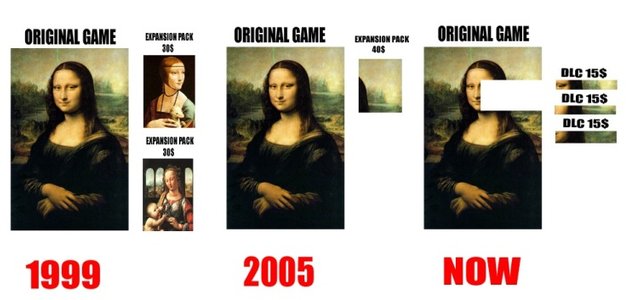
You may have noticed DLC infecting FFXIII's offshoots, or in Mass Effect 3's endings. DLC is a plague on gaming. It effects not only RPGs, but the entire industry as a whole. In game transactions. Plot points behind a paywall. Hidden bosses. Entire endings. All of this waters down excellent games in a mad cash grab by increasingly greedy companies. Gone are the days of Working Designs.
I want to play RPGs for the full story. If you sell me a game at full price without the full story, I'm going to be pissed off. This has started to happen a lot more, recently, and all RPG fans, young and old, need to stop supporting it so that it can die before it destroys the entire genre. There's nothing wrong with releasing sequels. There is something wrong with releasing short, episodic content that is part of a story that can and should be able to fit on one disk (or the equivalent digital download size). But mark my words: if DLC isn't stopped, our beloved genre will become a shadow of its former self.
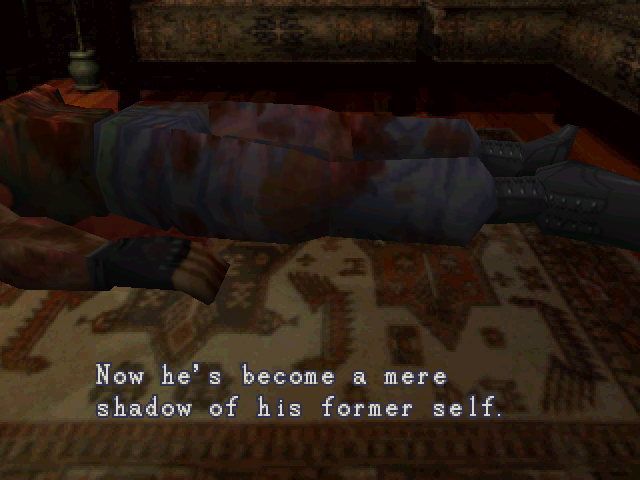
Just like Kenneth.
If you're an RPG fan, even if the more modern games don't appeal to you, I urge you to fight for their future. Write to your gaming companies (or tweet them - whatever) whenever you see DLC taking over. Leave thoughtful reviews on Steam. Maybe develop a game yourself. Whatever you do, though, don't ignore the growing problem, or it will just get worse, and lead to the downfall of RPGs as we know them.
/Albert%20Odyssey%20-%20Legend%20Of%20Eldean%20%28U%29%20CD.jpg)

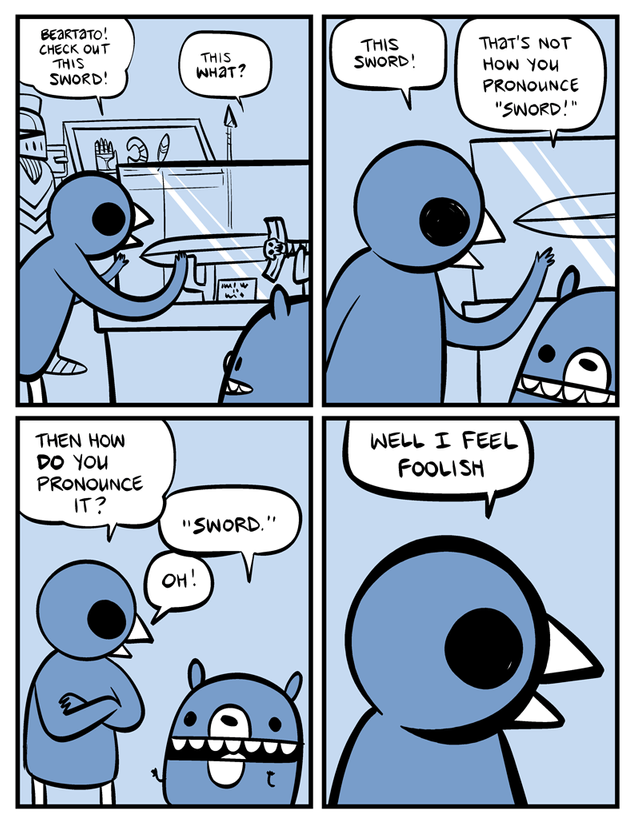
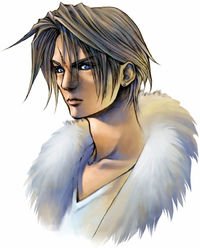
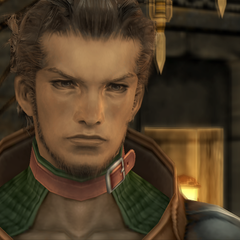
I also would like to add that I think CD Projekt is one of the few publishers worth supporting. Although The Witcher series is not one of the most complex RPGs, I have extensively enjoyed all three games in the series. Solid action RPG in my opinion. More importantly though is that they develop, publish, and distribute their own games, remaining independent of the bureaucracy involved with working with another publisher or becoming a subsidiary of one. This allows them to work at their own speed and make games they like without nearly as much pressure to rush games out or streamline for the masses. I think similarly can be said of Rockstar.
A great article... I sadly agreed with all your points. Can't play anything with a protagonist younger than me. Too unrelatable, as my niche in RPG's thins out, I find myself looking for more darker, more mature games... The last good ones: Dragon Age and The Witcher ... That's it.
Anyways, here is another really cool article you might enjoy on voices in games: http://bit.ly/2jrLfcg
Thanks dude! I still haven't played the Witcher series yet - really want to get into it but I'm waiting to get a better computer.
It's worth playing. The first one in the series hasn't aged well and the combat is sorta repetitive, but the characters, plot progression, quests, and immersive world make it worth chugging through. 2 and 3 are in no way a chore to play though so makes it worth playing the first.
Yes. The Witcher is really good. There are some nice character developments, beautiful scenery and much more. #recommended
I too have found myself out of touch with popular RPGs. Dwarf fortress is probably the most fun current rpg that nears what you're talking about, but has a lot more complexities to go along with it.
The level of patience needed for that game is astounding. I think one of the Terraria creators plays that as a hobby (could be wrong, might be thinking of a similar indy). I respect it, but I don't think I'm ready to go all in with it!
It's one of those games you can watch a 6 hour tutorial series on and still not know whats going on. But you can even read the day to day thoughts of each dwarf and you get attached to them and want to see them do well.
I completely agree with you, I grew up on RPG's which are a huge influence on my art style today. I've always backed Square-Enix (formally Squaresoft) since child hood as a huge fan but now you can't escape an advertisement of they're crappy mobile city app game that branches off FFXV(great game though). DLC's are a plague to the entire gaming industry and I hate how these companies are trying to squeeze every dime out of us that they can. I do believe that the future of gaming and RPG's has a shot at evolving in an entirely new way incorporating augmented reality and cryptocurrency. Ever heard of Sword Art Online - Ordinal Scale? I'm still optimistic though, lets keep our genre alive! I plan to write a blog about it in the future. Great read. Followed! Peace Dawg!
I agree with much of what you say, although as I only came to gaming in 2001 I can't get into the older RPG's such as buldar's gate and Morrowmind because the graphics are so primitive. I could probably enjoy them more as pure text games than trying to play them as they are. I agree that most RPG's cater for a younger audience & that bad voice acting is worse than no voice acting at all, as others have said dragon age & the witcher series work better for us older ones, the big problem I've had with, certainly witcher 2 is the QTM difficulty spike early on, I haven't tried W3 yet, been saving it, but to this day I still haven't been able to kill that damn krackenlike pond monster early on, my reactions are just too slow, hugely annoying...
I totally agree about the DLC I think this is just pure profiteering by the games companies, and I won't buy it until the price comes right down, which means that, generally I won't buy a game until it's been out for a year or more to avoid the frustration of waiting until the DLC price is right or feeling totally ripped off if I don't wait...
I could be out of touch with my thoughts as well, but as I age I find it more difficult to pick up a console RPG - new or old. Newer games have some issues as you point out, but I feel like some of the older RPGs lose some of their hook in the battle system mainly through expected pacing playing new games. Just pick up KH2 and then immediately go to one and see how much slower it feels to play even though I would admit to enjoying 1 more. What I do feel ages much better are the handhelds. After all these years I can still pick up a turn based Fire Emblem, Advanced Wars, FF: TA, Golden Sun, or Sword of Mana. Admittedly these don't fall into the traps as you describe above, but I feel like the pacing feels more even and what I would expect vs replaying something like Skies of Arcadia years later if that makes any sense.
great story my friend @bofromsales
Thanks!
great post thank's for share it with us , I ve followed you thank's again !
Thanks-I'll keep them coming as long as I have something to write about!
I loved reading your article. Your nostalgia kept my attention all the way through, even though I didn't know most of those games. I used to play Wolfenstein, Doom/Doom 2, and some video board games..oh, yes , and Galaga my favorite when I lived in S. Korea besides back to the USA.
Thahkyou for posting your article.
Funny you should mention Galaga - I've got one of those machines just a few minutes walk from my apartment (comes with Pacman, too). I was never great enough to get the high score in it in the arcade, but I love flying games (they don't make them like they used to, either). What was the one I was obsessed with a decade or 2 ago? Grandia 3 or something? I gotta look into finding out if any of those are still around.
Anyway, thanks for the comment. I think I'm finding my voice here, thanks to comments like these.
You are absolutely correct my friend, and I am of the newer generation of gamers (born in 1993). But this isn't really limited to RPGs in my opinion. It seems that gaming in general has become progressively dumbed down over at least the past few decades. I believe this is a result of corporatism infecting the industry once it became very mainstream, and the resulting centralization of the video game publishing industry. The answer of course is to do the best you can to support indie devs while avoiding big publishers like EA and Activision like the plague, only purchasing games from them that ABSOLUTELY warrant your attention. I also no longer purchase games as soon as they release unless they are from an indie dev and extreme exceptions to the rule (I will be buying Kingdom Hearts 3 day one and no one can stop me).
I'm on the same page as you (especially when it comes to KH3, although I might be in an old folks home by then). Steam has done wonders for indie exposure. The more those devs get the support, the less "mass market" I think gaming will feel.
I get it, they need profits, but there's a better way to get them then ruining series with DLC and gimmicks (Dead Space 3, looking at you).
Oh I'm in no way against devs seeking profits, because profit is usually a result of creating value for the consumer; however, I think the problem is typical to every industry where a particular company gains political influence and is then able to leverage it to push out competition by erecting barriers to entry through government sanctions. This company is then able to squeeze a lot more profit out of its customer by reducing quality because they are the only supplier. The video game industry is luckily unique where almost anyone with a strong coding background can make a game with a small amount of capital, so I think we will continue to see a push back against this, unless of course some type of law is made to target indie devs (honestly not outside of the realm of possibility).